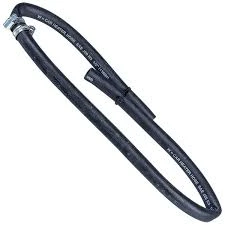Overview of Gasoline Delivery Hoses and Their Applications in Fuel Transfer Systems
Oct . 31, 2024 17:00 Back to list
Overview of Gasoline Delivery Hoses and Their Applications in Fuel Transfer Systems
The Importance of Gasoline Hoses in Fuel Delivery Systems
Gasoline hoses are essential components in fuel delivery systems, serving a critical role in transportation, storage, and dispensing of gasoline and other petroleum products. These hoses are designed to handle the unique challenges posed by the volatile nature of gasoline, which requires materials and construction methods that ensure safety, durability, and efficiency.
One of the primary functions of gasoline hoses is to transport fuel from storage tanks to the dispensers at gas stations or directly to vehicles. Due to the corrosive properties of gasoline, hoses must be constructed from materials that resist degradation. Commonly used materials include synthetic rubber and various plastics reinforced with fabric or metal, which provide the necessary strength and flexibility.
An important aspect of gasoline hose design is pressure tolerance. Gasoline is moved under pressure, and the hoses must withstand not only the pressure from the gasoline itself but also external factors such as temperature variations and potential punctures or abrasions. High-quality gasoline hoses are often tested rigorously to meet strict industry standards, ensuring they can perform safely under various conditions.
gasoline hose

Furthermore, gasoline hoses must also consider safety measures against leaks and spills. Fuel leaks can pose significant environmental hazards and safety risks, including fire hazards. Modern gasoline hoses are designed with features that minimize such risks. Many are equipped with leak detection systems or are designed to shut off automatically in case of a rupture. Additionally, they are often fitted with grounding cables to prevent static electricity buildup during fuel transfer.
Regulatory standards play a vital role in the production and use of gasoline hoses. In many regions, regulations dictate the specifications that hoses must meet, including material compatibility, pressure ratings, and environmental considerations. Adhering to these standards not only ensures safety for the public and the environment but also helps manufacturers maintain quality and reliability in their products.
Installation and maintenance practices also contribute to the efficiency and lifespan of gasoline hoses. Proper installation techniques, including avoiding sharp bends and ensuring secure connections, can significantly reduce wear and potential failure. Regular inspections and maintenance help identify any signs of deterioration, such as cracks or bulges, which can be indicative of potential failure points.
In conclusion, gasoline hoses play a crucial role in the safe and efficient delivery of fuel in various applications. Their design and construction must address the specific challenges associated with gasoline, ensuring they are durable, safe, and compliant with industry regulations. For both fuel providers and consumers, understanding the importance of high-quality gasoline hoses is vital to maintaining safety and efficiency in the fuel supply chain. As technology advances, we can expect further improvements in materials and designs, ensuring that gasoline hoses continue to evolve alongside the ever-changing fuel industry.
